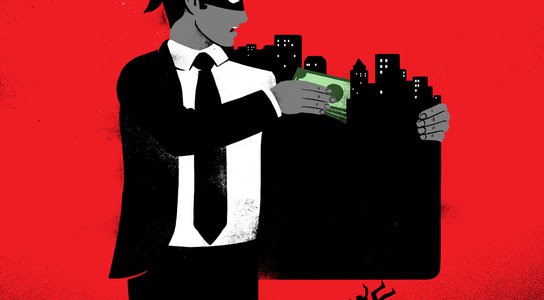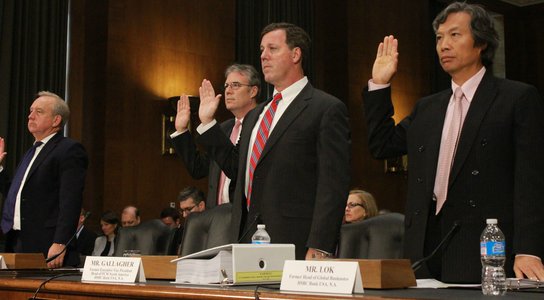Today
the High Court in London has begun to hear a case brought by the Libyan
sovereign wealth fund, the Libyan Investment Authority (LIA), against Goldman
Sachs. It has particular resonance for Global Witness as we published
the documents which originally revealed
that Goldman and HSBC, amongst others, managed funds for the LIA back in 2011.
The Libyans accuse one of the world’s major banks of exploiting the naivety of the LIA by making risky bets on its behalf, most of which lost vast amounts of money. There are some colourful allegations about the lengths Goldman appears willing to have gone to win the business, which the bank denies. For Global Witness, our main interest is in how big banks appear willing to turn a blind eye to a glaringly obvious corruption risk. This approach makes it is easier for powerful elites to steal from their people, which triggers the kind of unrest and suffering that has plagued this region for many years.
This case has particular resonance as we published the documents which originally revealed the details of the LIA’s financial holdings way back in 2011. The LIA itself was poorly run and under the personal control of Seif Gaddafi, the son of the then Libyan ruler. Checks and balances on how the LIA’s money was spent and invested appear to be almost non-existent. Seif’s brother Saadi famously parked a good deal of his cash in a £10 million pound house in Hampstead, in an early example of the problem of luxury London property serving as a magnet for suspect find from overseas - more on that here.
We’ll be monitoring the case over the next few weeks and offering comment on the role of the bank in claimed mismanagement of Libyan state funds.
“This case is an important reminder of how keen a number of major financial institutions were to do business with such a corrupt government,” said Robert Palmer, anti-money laundering campaign leader at Global Witness. “Access to the international financial markets allows regimes like Gaddafi’s to continue to enrich themselves at the expense of their people. That kind of corruption was the backdrop for uprisings in the Middle East which are still playing out today. It’s time for banks to turn down this sort of business”.


